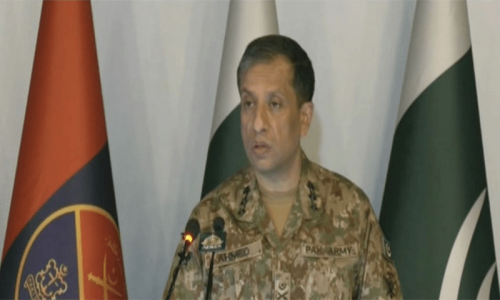ISLAMABAD: Pakistan and Afghanistan on Monday agreed on revitalising their bilateral engagement framework — Afghanistan-Pakistan Action Plan for Peace and Solidarity (APAPPS) which has been largely dysfunctional for the past 10 months — and promoting economic cooperation.
The revival of the forum was agreed between the two countries during a telephonic conversation between Foreign Minister Shah Mehmood Qureshi and his acting Afghan counterpart Haneef Atmar.
This was the first contact between the two foreign ministers ever since Mr Atmar was given charge of the Afghan foreign ministry on April 4. Mr Atmar’s appointment is yet to be confirmed by the Afghan parliament.
Mr Qureshi greeted Mr Atmar on his appointment and expressed optimism about bilateral ties expanding during his tenure.
Mr Qureshi, according to a statement on the conversation issued by the Foreign Office, hoped that the next meeting of APAPPS would soon be convened.
Qureshi discusses with his Afghan counterpart ways for promoting economic cooperation
Mr Atmar, meanwhile, emphasised the importance of bilateral frameworks like APAPPS for taking the relationship forward.
Mr Atmar, later in a tweet, said that “working together on counter-terrorism through APAPPS mechanisms, building a better understanding of each other’s concerns, intel sharing from Aslam Farooqi and his accomplices for mutual security and security cooperation in our shared region constitute our top priorities”.
The two countries, whose ties have long been marred by mutual mistrust, had put in place APAPPS in May 2018 as the new framework for the relationship under which they were expected to promote cooperation in the areas of counterterrorism and reduction of violence, peace and reconciliation, refugees’ repatriation and joint economic development. APAPPS has five working groups, including the one on security and intelligence cooperation.
The last meeting under the framework was held in June 2019. Afghanistan was to host the next meeting in December, 2019. However, it could not be held because of the controversy over the result of the Afghan presidential election that delayed the formation of the new government.
Mr Atmar had remained involved with the process during his last tenure as the Afghanistan’s national security adviser.
The proposal for the revival of APAPPS was made by the Afghan government earlier this month, while responding to Pakistani demand for handover of Daesh commander Abdullah Orakzai alias Aslam Farooqi, who had been captured by Afghan security forces. The Afghan foreign ministry rejected the Pakistani request because of absence of an extradition treaty between the two countries, but at the same time emphasised the need for “joint efforts for exchange of information under the Afghanistan-Pakistan Action Plan for Peace and Solidarity (APAPPS)” for cooperation in the fight against terrorism.
Pakistan Ambassador to Afghanistan Zahid Nasrullah Khan later followed up on the issue with Mr Atmar when the two met last week in Kabul.
Islamabad has recently made number of overtures to Kabul. Responding to Afghan government’s request Pakistan facilitated the repatriation of Afghans, who got stranded here because of closure f borders because of the Covid-19 pandemic. Moreover, restrictions were relaxed for movement of cargo.
The two foreign ministers during their conversation also touched upon the latest situation in the Afghan peace process.
Mr Atmar said that they had during their conversation agreed to work together and with regional partners on “immediate humanitarian ceasefire, start of the intra-Afghan negotiation and release of prisoners by both Afghan government and Taliban”.
Mr Qureshi reiterated Pakistan’s steadfast support for the Afghan peace and reconciliation process and said that the US-Taliban Peace Agreement provides a historic opportunity for the Afghan leadership to jointly work for the ultimate aim of a peaceful and stable Afghanistan.
About the economic issues discussed during the talk, Mr Atmar said the two sides would work for a joint economic cooperation framework, continuing cooperation to facilitate bilateral trade and transit during the Covid-19 crisis and reviewing feasibility of railway extension into Spin Boldak and Torkham.
Published in Dawn, April 21st, 2020















































